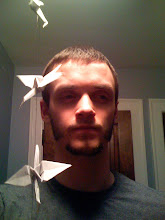Many people spend their study abroad experiences sightseeing, going to discothèques, sampling regional cuisines, jet setting to Pairs and Prague or otherwise taking an extended vacation from life. My study abroad experience is setting out to be much different from that which I’ve just described.
My program, The Center For Medieval and Renaissance Studies (CMRS), is an intense academic program that gives American students a chance to taste what it’s like to study at Oxford University. Traditionally, students at Oxford sign up to take two tutorials a semester. The way the tutorial system works is students meet one-on-one with a professor (aka a tutor) once a week to discuss an essay they have prepared on a selection of reading. This allows students to pursue topics in their field in an in-depth and independent manner.
Writing these weekly essays is shaping up to be the most time consuming part of my life for the next eight weeks. The intense work load of this program will more than likely prevent me from doing most of the standard study-abroad activities that I listed above; although, I have found the time to sample the fish and chips (though, not without a book close at hand!).
Anyone who knows me will know that I enjoy a good time, but they will also know that my definition of what constitutes a good time is different from the normal ‘animal house’ definition of such. My idea of fun, you see, is enrolling in two philosophy tutorials, one on the Age of Enlightenment (roughly 18th century philosophy) and the other on the philosophy of the Middle Ages (roughly between the 9th and 14th centuries).
I am especially excited to study these two periods because they are in stark contrast to one another. The former is guided by pure reason, and represents the dawning of the modern age and the age of science; the latter is guided, almost exclusively, by the Catholic Church and represents the height of theological authority.
The history of ideas is something that has always interested me. These two periods are so extraordinarily different. The philosophy is very different and the way people lived their lives is, presumably, also very different. I suspect there is a strong relationship between the philosophy of an age and the way in which people live. In my studies this semester, I hope to find out what exactly that relationship is.
In the introduction to his book History of Western Philosophy, Bertrand Russell writes, “Between theology and Science there is a No Man’s Land,” i.e. Philosophy - that discipline which lacks the all too definite answers of theologians and which asks questions that cannot be found out in a laboratory. “Is man as he seems to the astronomer? A tiny lump of impure carbon and water impotently crawling on a small and unimportant planet?” Russell asks, channeling the archetypal philosopher, “Or is he what he appears to Hamlet? Perhaps he is both...” Without philosophy though, he may be nothing at all. This is especially true if you subscribe to that Cartesian motto, “I think, therefore I am” (or for those of you who prefer the Latin: “cogito ergo sum”).
Students at the CMRS also take a seminar in an area of special interest (Shakespeare). Seminars meet once a week for a group discussion on some text (ten of Shakespeare's most important tragedies). The other part of the seminar is an in-depth research paper on a particular aspect of the subject matter (depictions of the working-class in Elizabethan Drama; with special attention paid to court jesters, musicians and dramatists). Finally, all students take an integral course that consists of a lecture series devoted to European history from the Renaissance to the Enlightenment, which also includes field trips and a colloquium designed for the discussion of key texts.
These are the thoughts and activities that will consume most of my time here. If you find this all incredibly boring and academic, you may not be interested in reading anymore of my blogs. I myself am very excited to be enrolled in this program and will try to learn as much as humanly possible while I am here.
My first task to is to dismantle Descartes' body/mind dualism. The essay is due on wednesday, sooo i should probably get started on that. After receiving this assignment, and as I was leaving my first tutorial meeting, my tutor, Dr. Crowe, mumbled to himself, about the ridiculousness of Descartes Cogito, “He might as well have said, ‘I drink, therefore I am.’” I rather like that sentiment, and so I will leave you with that. I bid you adieu.
Selah!
-Kevin

No comments:
Post a Comment